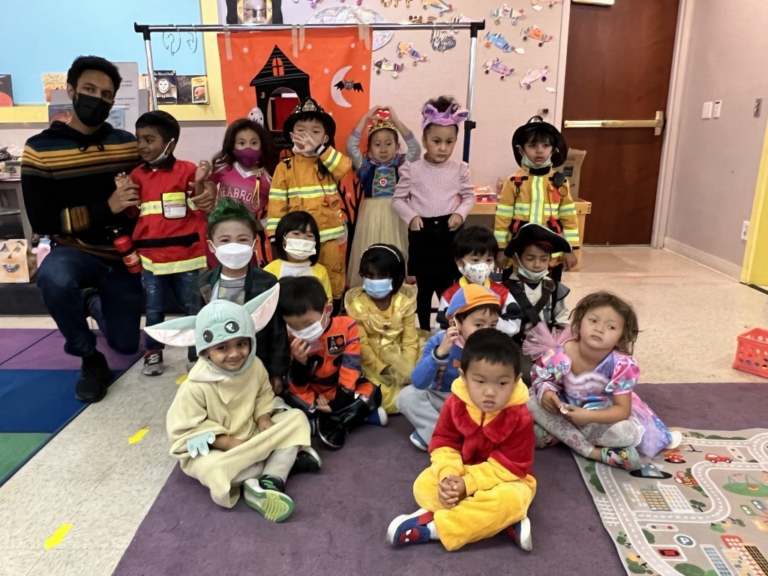
The Impact of Teacher Qualifications on Learning Outcomes in San Ramon Preschools
Preschool is a critical time in a child’s development, laying the foundation for future academic success. One of the key factors influencing the quality of preschool education is the qualifications of the teachers and educators. In San Ramon preschools, the impact of teacher qualifications on learning outcomes is profound. Let’s delve into why teacher qualifications matter and how they shape the educational experience for young learners.
The Importance Of Early Education
Before we explore teacher qualifications, it’s essential to understand the significance of early education. The early years of a child’s life are a period of rapid brain development. During this time, children are like sponges, absorbing knowledge, building language skills, and forming the basis for cognitive, social, and emotional growth.
High-quality preschool programs provide children with the tools they need to excel academically, develop essential social skills, and nurture their curiosity and creativity. However, the effectiveness of these programs largely depends on the qualifications and expertise of the teachers.
Teacher Qualifications And Learning Outcomes
Teacher qualifications encompass a range of factors, including education, training, experience, and ongoing professional development. Here are several ways in which teacher qualifications impact learning outcomes in San Ramon preschools:
Educational Background: Building A Strong Foundation
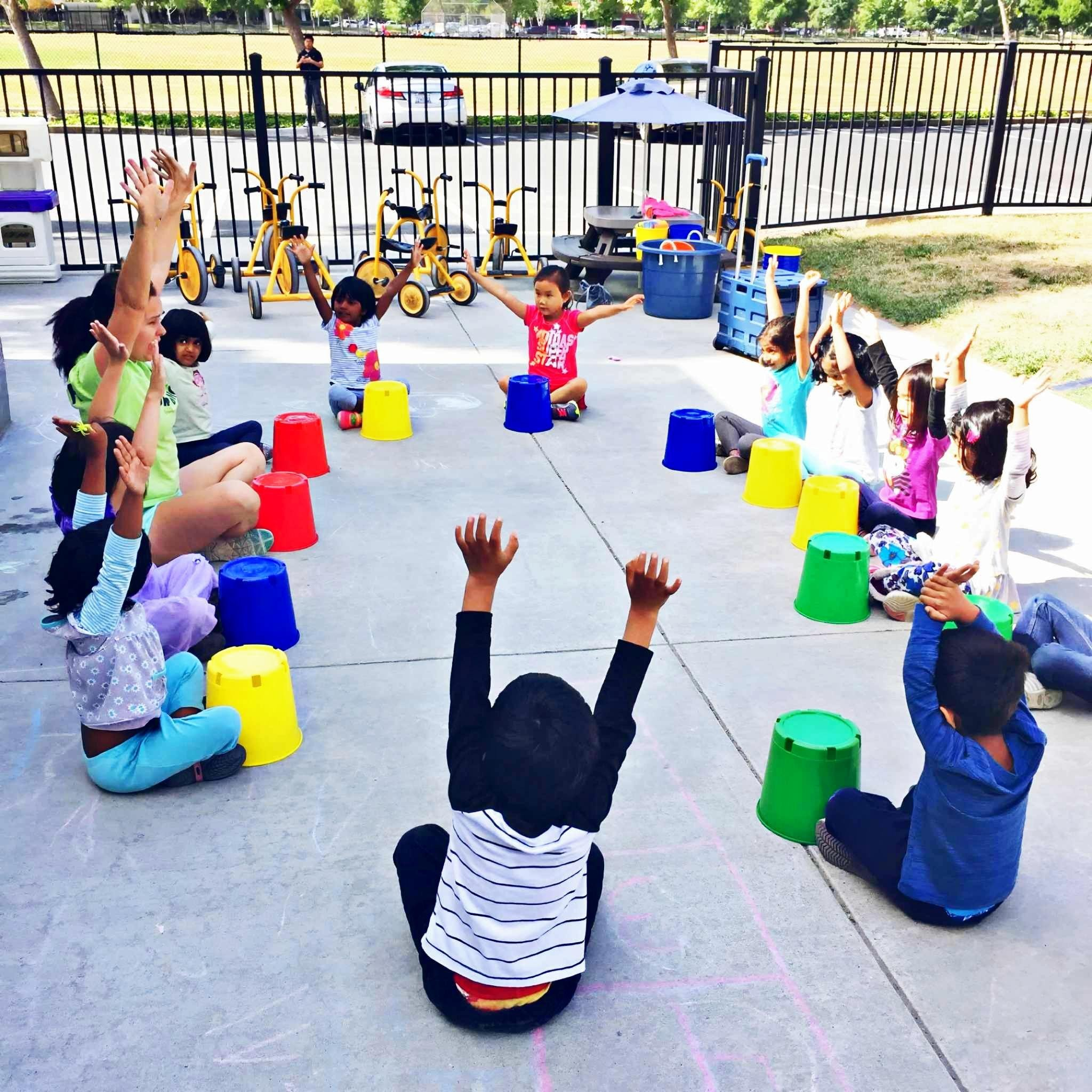
Teachers with degrees in early childhood education or related fields bring a wealth of knowledge and expertise to the preschool classroom. Their educational background serves as a strong foundation for providing high-quality instruction to young learners. Here’s a closer look at the significance of their academic qualifications:
- Child Development Expertise: Early childhood educators with degrees in the field have a deep understanding of child development. They are well-versed in the various stages of physical, cognitive, social, and emotional growth that children undergo during their preschool years. This knowledge allows them to create developmentally appropriate activities and experiences that cater to each child’s unique developmental needs.
- Curriculum Planning: A solid educational background equips teachers with the skills to design effective curriculum plans. They can structure the learning experiences in a logical and sequential manner, ensuring that children build upon their knowledge and skills progressively. This organized approach contributes to a more comprehensive and well-rounded education.
- Instructional Strategies: Teachers with academic qualifications are familiar with a wide range of instructional strategies that cater to diverse learning styles. They can employ evidence-based teaching methods that have been proven effective in early childhood education. These strategies engage children, promote active learning, and maximize the retention of knowledge.
- Assessment and Evaluation: Assessing children’s progress and development is a critical aspect of preschool education. Educators with relevant degrees have the expertise to design assessment tools and methods that accurately gauge a child’s growth. This data-driven approach allows for targeted interventions when needed and ensures that children are meeting important developmental milestones.
- Understanding Learning Disabilities: An educational background in early childhood education often includes coursework on identifying and addressing learning disabilities and special needs. This knowledge is invaluable in recognizing when a child may require additional support and in collaborating effectively with specialists or support staff to provide the necessary assistance.
Pedagogical Skills: Tailoring Education To Young Minds
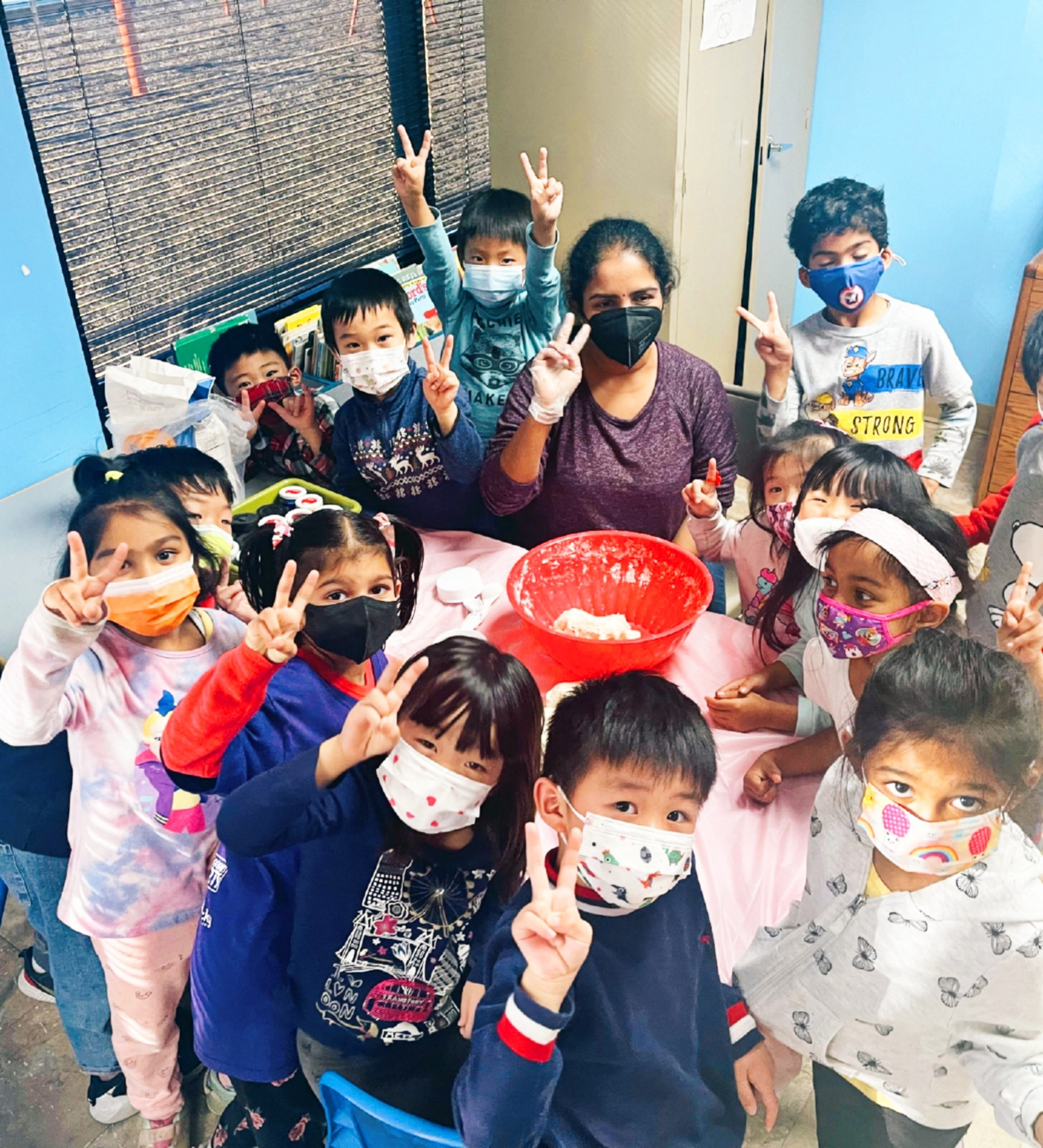
Qualified teachers not only possess academic qualifications but also exhibit exceptional pedagogical skills that are essential for teaching preschool-aged children. These skills enable them to create a stimulating and effective learning environment. Here’s why pedagogical skills are crucial:
- Developmental Appropriateness: Understanding the unique needs of young learners is paramount. Qualified teachers are skilled at designing activities and lessons that align with the developmental stage of each child. This ensures that the content is neither too advanced nor too basic, promoting optimal learning.
- Engagement and Motivation: Preschoolers thrive in an environment that is engaging and motivating. Skilled teachers have a repertoire of strategies to capture children’s attention, spark their curiosity, and maintain their enthusiasm for learning. They use creative and interactive approaches to make learning enjoyable.
- Individualization: Every child is different, and pedagogically skilled teachers recognize the importance of individualized instruction. They can adapt their teaching methods to accommodate various learning styles and paces, ensuring that each child receives the support they need to succeed.
- Effective Communication: Communication is at the heart of teaching. Skilled teachers possess excellent communication skills, both verbal and non-verbal, which are essential for conveying information, fostering positive relationships, and creating a nurturing classroom environment.
- Classroom Management: Maintaining order and discipline in a preschool classroom requires effective classroom management skills. Qualified teachers can establish clear routines, set expectations, and manage behavior in a way that is conducive to learning while maintaining a warm and supportive atmosphere.
Classroom Management: Creating A Positive Learning Environment
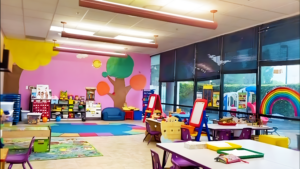
Effective classroom management is a cornerstone of high-quality preschool education. Qualified teachers bring a wealth of knowledge and training in behavior management techniques, ensuring that the classroom remains a positive and conducive space for learning. Here’s a closer look at the importance of effective classroom management:
- Establishing Clear Expectations: Qualified teachers begin by establishing clear expectations for behavior in the classroom. They communicate these expectations to the children in age-appropriate language, ensuring that every child understands what is expected of them. This clarity sets the foundation for a well-organized and disciplined classroom.
- Consistent Routines: Preschoolers thrive on routines. Qualified teachers create consistent daily routines that include transitions, mealtime procedures, and designated times for various activities. Predictable routines help children feel secure and confident in their environment, reducing anxiety and promoting a sense of stability.
- Positive Reinforcement: Skilled teachers use positive reinforcement techniques to encourage desired behaviors. They praise and acknowledge children for following classroom rules, participating in activities, and demonstrating kindness and cooperation. Positive reinforcement reinforces good behavior and motivates children to continue making positive choices.
- Redirecting Behavior: In preschool, it’s natural for children to test boundaries and occasionally exhibit challenging behaviors. Qualified teachers are adept at redirecting behavior in a gentle and constructive manner. Instead of punitive measures, they use techniques such as offering alternatives or providing gentle reminders to guide children toward more appropriate behavior.
- Conflict Resolution: Conflict can arise in any classroom. Qualified teachers teach children valuable conflict resolution skills, such as using words to express feelings, listening to others, and finding solutions together. These skills not only promote harmony in the classroom but also equip children with important life skills.
- Emotional Regulation: Preschoolers are still developing their emotional regulation skills. Qualified teachers help children identify and manage their emotions constructively. They create a safe space for children to express their feelings and provide guidance on coping strategies, such as deep breathing or taking a break when needed.
Individualized Support: Meeting Unique Needs
In a diverse preschool classroom, every child is unique, and qualified teachers understand the importance of providing individualized support to meet each child’s specific needs. Here’s how they excel in offering personalized assistance:
- Assessment and Observation: Qualified teachers regularly assess and observe each child’s progress and behavior. Through careful observation, they can identify a child’s strengths, areas of improvement, and any specific needs or challenges. This data-driven approach informs their teaching strategies.
- Differentiated Instruction: To cater to individual needs, skilled teachers employ differentiated instruction. They adjust their teaching methods, materials, and activities to match a child’s learning style, pace, and abilities. This ensures that children receive the level of challenge and support that suits them best.
- Supporting Diverse Learners: In inclusive classrooms, where children may have different abilities or learning styles, qualified teachers embrace diversity. They collaborate with specialists or support staff when necessary to provide additional support for children with unique needs, ensuring that all children have equal access to learning opportunities.
- Enrichment and Extension: For children who excel in certain areas, qualified teachers offer enrichment opportunities to nurture their talents. This may involve providing advanced activities or projects that challenge and engage these children. Conversely, for children who require extra support, teachers provide additional resources and interventions to help them catch up and thrive.
- Regular Communication with Parents: Qualified teachers maintain open lines of communication with parents to discuss a child’s progress and any specific concerns or needs. This partnership between teachers and parents ensures that a child’s individualized support plan is collaborative and comprehensive.
Language And Literacy Development: Fostering Early Reading Skills
Qualified teachers understand the critical role they play in nurturing language and literacy development during a child’s formative years. They implement a range of strategies to enhance vocabulary, reading readiness, and communication skills, ultimately laying the foundation for future academic success.
- Rich Language Environment: Skilled teachers create a language-rich environment where words and communication are celebrated. They engage children in conversations, read aloud daily, and expose them to a wide variety of books and storytelling experiences. This immersion in language helps children build vocabulary and comprehension skills.
- Phonological Awareness: Teachers introduce phonological awareness activities that focus on sounds and their connection to letters. Through games, songs, and rhyming activities, children develop an understanding of the sounds that make up words, which is a crucial precursor to reading.
- Interactive Storytelling: Storytelling is a powerful tool for language development. Qualified teachers encourage children to participate in storytelling by asking open-ended questions, allowing children to retell stories in their own words, and creating opportunities for dramatic play that brings stories to life.
- Emergent Literacy: In addition to reading, teachers promote emergent literacy skills, which encompass the building blocks of reading and writing. This includes activities that develop letter recognition, writing skills, and an understanding of print concepts.
- Literacy-Rich Centers: Skilled teachers organize literacy-rich centers within the classroom, where children can explore letters, words, and books independently. These centers encourage hands-on exploration and a love for reading.
Social And Emotional Growth: Nurturing Well-Rounded Individuals
Preschool is a crucial time for social and emotional development, and qualified teachers recognize the importance of creating a safe and nurturing environment for children to thrive emotionally. Here’s how they support social and emotional growth:
- Emotional Regulation: Teachers help children understand and manage their emotions. They teach them to identify feelings and express them in healthy ways, whether through words, art, or play. Children learn that it’s okay to have emotions and that there are constructive ways to handle them.
- Conflict Resolution: Skilled teachers guide children in resolving conflicts peacefully. They encourage open communication, active listening, and problem-solving skills. Through these experiences, children learn to navigate interpersonal challenges and build positive relationships.
- Empathy and Respect: Teachers model empathy and respect for others, fostering a sense of empathy in children. They encourage children to understand and consider the feelings and perspectives of their peers, promoting a caring and inclusive classroom community.
- Social Skills: Preschool teachers teach important social skills, such as sharing, taking turns, and cooperating with others. These skills are essential for successful interactions in school and beyond.
- Building Self-Esteem: Skilled teachers create an environment where each child’s unique qualities and contributions are valued. They provide praise and positive reinforcement to boost self-esteem and self-confidence.
Professional Development: Lifelong Learning For Educators
Qualified teachers are committed to ongoing professional development. They understand that the field of early childhood education is constantly evolving, and staying updated on the latest research and best practices is essential to providing high-quality education. Here’s how they invest in their professional growth:
Continuous Learning: Skilled teachers engage in continuous learning by attending workshops, conferences, and training sessions related to early childhood education. They stay informed about new teaching methods, curriculum developments, and educational technology.
Collaboration: Qualified teachers collaborate with colleagues and mentors to share insights, exchange ideas, and learn from each other’s experiences. This collaborative approach fosters a culture of growth and improvement within the educational community.
Reflective Practice: Teachers engage in reflective practice, regularly evaluating their teaching methods and assessing their effectiveness. They seek feedback from peers, supervisors, and even parents to refine their teaching techniques.
Incorporating Research: Skilled teachers incorporate research-based strategies into their teaching. They stay current with the latest findings in child development and educational psychology, applying this knowledge to enhance their classroom practices.
Adapting to Change: The field of education is dynamic, and qualified teachers are adaptable. They embrace change and innovation, whether it involves integrating new technologies, addressing emerging educational trends, or adapting to diverse student needs.
Parental Confidence And Involvement: Building Partnerships
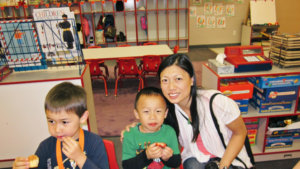
Teacher qualifications also play a significant role in fostering parental confidence and involvement in a child’s education. When parents know that their children are in the care of well-qualified educators, they are more likely to be engaged partners in their child’s learning journey. Here’s how teacher qualifications impact parental confidence and involvement:
Trust And Assurance:
Qualified teachers instill trust and assurance in parents. Parents can feel confident that their child is in capable hands, receiving quality education and care. This confidence encourages parents to actively participate in their child’s education.
Effective Communication:
Skilled teachers maintain open lines of communication with parents. They provide regular updates on a child’s progress, achievements, and any areas of concern. This transparent and proactive communication strengthens the teacher-parent partnership.
Parent Education:
Teachers offer guidance and resources to parents to support their child’s learning at home. They share strategies for literacy development, offer book recommendations, and provide tips for creating a supportive learning environment.
Collaborative Approach:
Qualified teachers view parents as partners in a child’s education. They encourage parents to share their insights and concerns, valuing their input in shaping the educational experience. This collaborative approach creates a sense of shared responsibility for a child’s development.
The Role Of Yang Fan Academy
Yang Fan Academy in San Ramon recognizes the pivotal role of teacher qualifications in early childhood education. They are committed to hiring highly qualified teachers who are not only passionate about teaching but also dedicated to the growth and well-being of each child.
In conclusion, teacher qualifications matter significantly in San Ramon preschools. Qualified teachers have a profound impact on learning outcomes, shaping the educational experience for young learners. Their expertise, pedagogical skills, and commitment to professional development create an environment where children thrive academically, socially, and emotionally. At Yang Fan Academy and other reputable preschools in San Ramon, teacher qualifications are a priority, ensuring that every child receives the best possible start in their educational journey.
